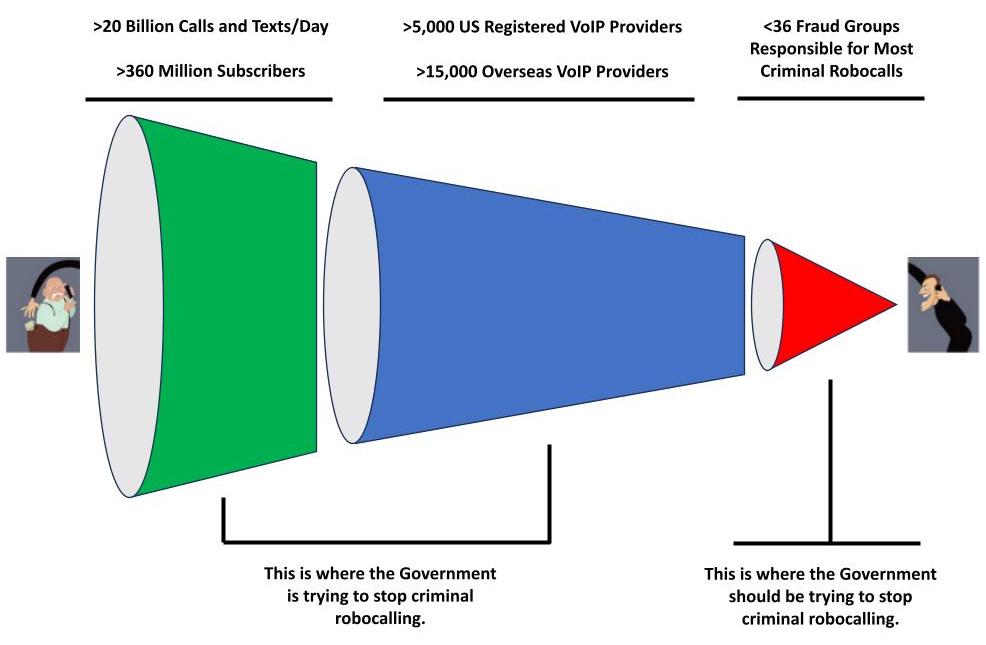Summary
All objective experience over the past seven years has shown that every successful effort to reduce robocalling has been the result of an enforcement action or fear of an enforcement action. Since most criminal robocalls originate from overseas, this necessitates close cooperation between US and foreign law enforcement.
Analysis
Every successful effort to reduce robocalling has been the result of an enforcement action. On October 4, 2016, local police in Thane India raided six criminal call centers. IRS impersonation calls to the US declined 85% the next day.

Source: IRS Office of Fraud Detection and Prevention
When IRS impersonation complaints began to increase in June and July 2017, most of the increase was tied to phone numbers activated by individuals associated with the criminal group that had been raided the previous October.
The October 2016 raids also resulted in a significant drop in overall robocalling complaints.
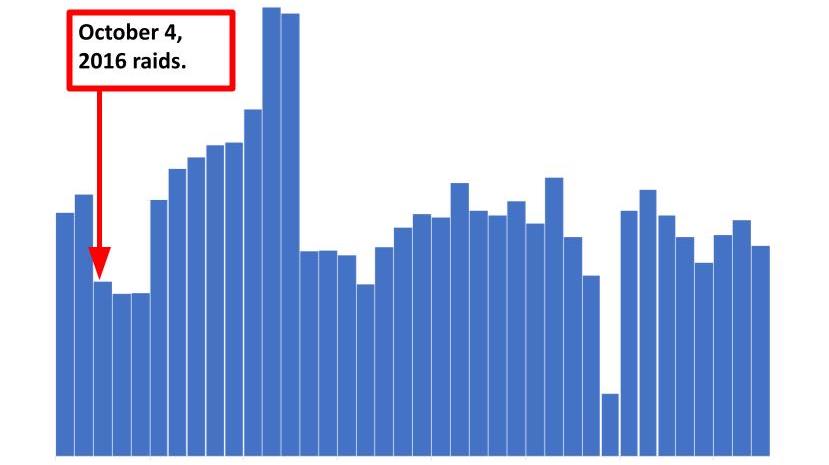
Source: FTC.gov
The alleged owner of these six call centers, Sagar Thakar, fled India in October 2016. He was arrested in Dubai in 2017 on a US-issued Red Notice, made bail, and self-deported to India. He was arrested and charged by Indian authorities upon arrival in Mumbai. The current status of his case in India and the US Government’s extradition efforts are unknown.
The Chief of the Thane India Police later alleged that US authorities refused to provide support to his department’s investigation.
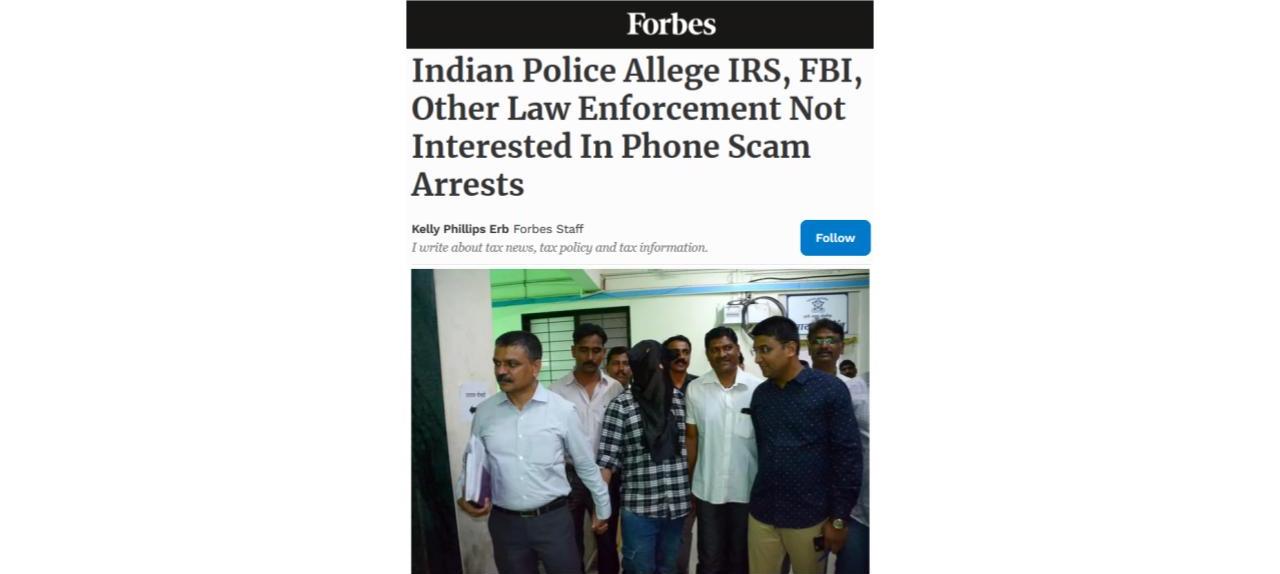
In 2017 robocalling was reduced 50% after the FCC filed civil actions against Adrian Abramovich for sending millions of “neighbor spoofed” vacation and timeshare offer calls.
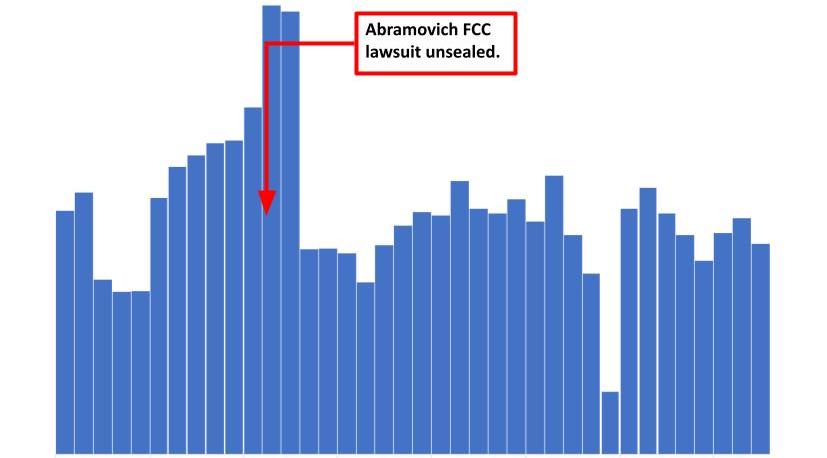
Source: FTC.gov
The FCC proposed a $120 million fine against Abramovich. Six years later the Department of Justice filed suit to collect. This case is still being litigated (See case # 1:23-cv-21723-BB; Southern District of Florida).
In 2018, a series of raids by local police in and around New Delhi based on tips from the Royal Canadian Mounted Police reduced Canadian Revenue Agency (CRA) impersonation calls 77%.
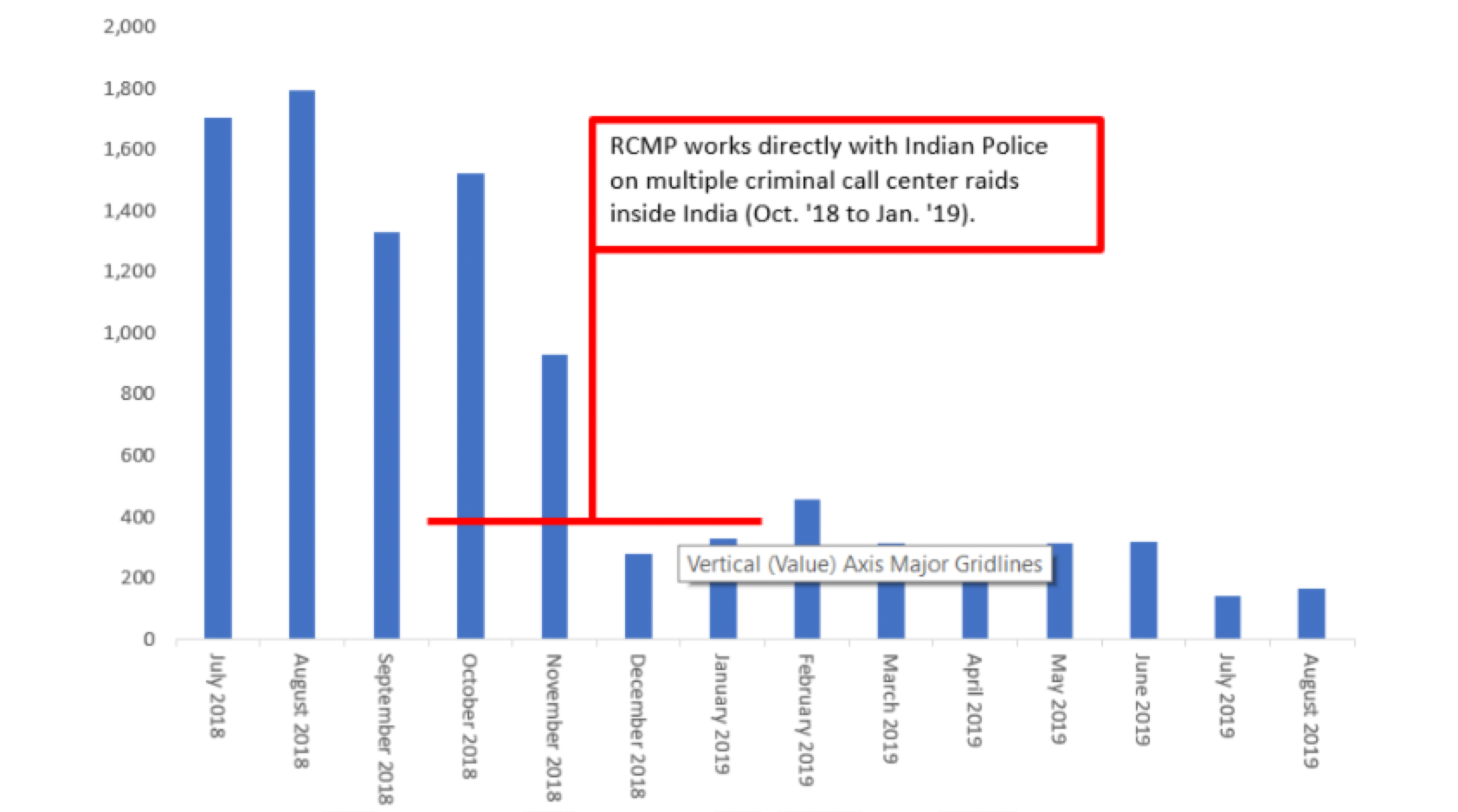
Source: Canadian Anti-Fraud Centre

Beginning in December 2019, health and health insurance related robocalls declined 60% after the FTC obtained a Temporary Restraining Order against a Canadian VoIP provider called Globex Telecom.
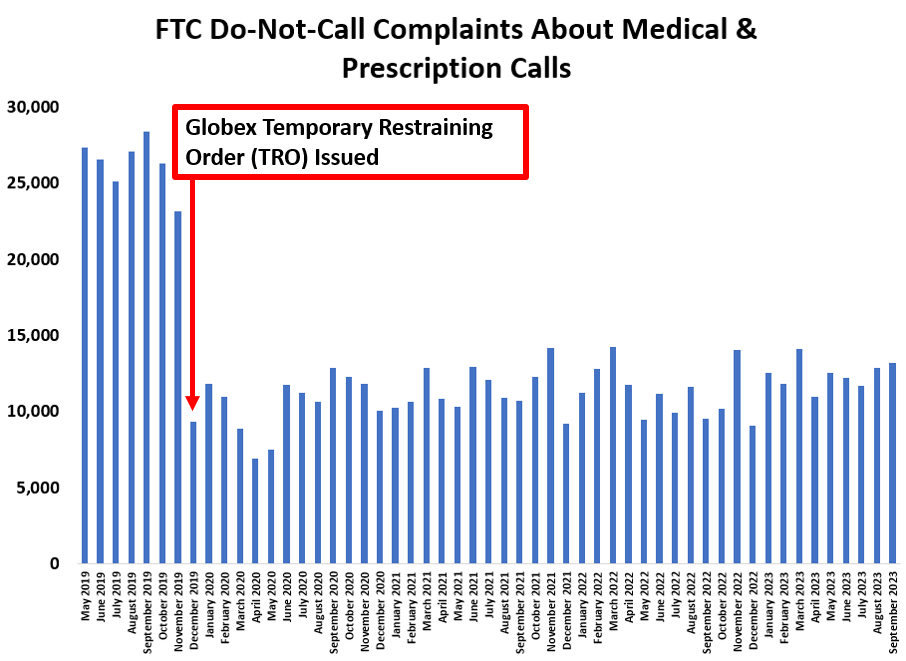
Source: FTC.gov
Beginning in July 2021, car warranty robocalls declined 95% after the FTC opened an investigation into several telemarketing businesses. The FCC also issued notices to telecom carriers in July 2022 to disconnect a different group of businesses that had been sending car warranty robocalls.
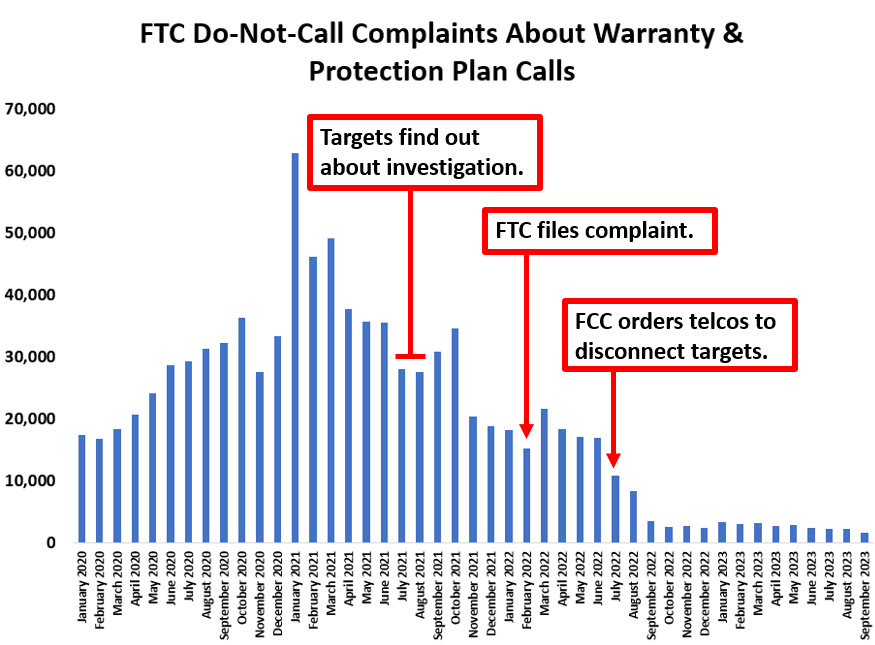
Source: FTC.gov
It should be noted that at least one of the targets in the 2022 FCC action had previously been banned from telemarketing in 2013.
Since July 2021, the FCC has required all voice service providers to register with the Robocall Mitigation Database (RMD). Traceback is conducted through e-mail. When a phone company attempts to trace an illegal call, each phone company in the chain of providers between a call’s point of origination and termination is contacted. This mean that, many times, the criminal sending an illegal call is aware the call is being traced.
Even though robocall mitigation plans submitted through the RMD are frequently pro forma, and there is no verification they are being implemented, RMD registration, in and of itself, means all voice service providers allowed to connect to US phone companies are publicly identified. The combination of tracebacks and the RMD registration requirement has created an environment where criminals’ perceived risk of discovery has reduced robocalls 59%.
Since most tracebacks, however, do not result in an enforcement action, this has not stopped overseas criminals from defrauding Americans. This has caused them to shift from relying on large volumes of outbound phone calls to distributing call back phone numbers through e-mail messages and computer pop-ups. As a result, while robocalling complaints to the FTC have declined 58% (Q2 2021 over Q3 2024), the dollar loss reported to the FTC from scams initiated by phone call have increased 32% during the same period.
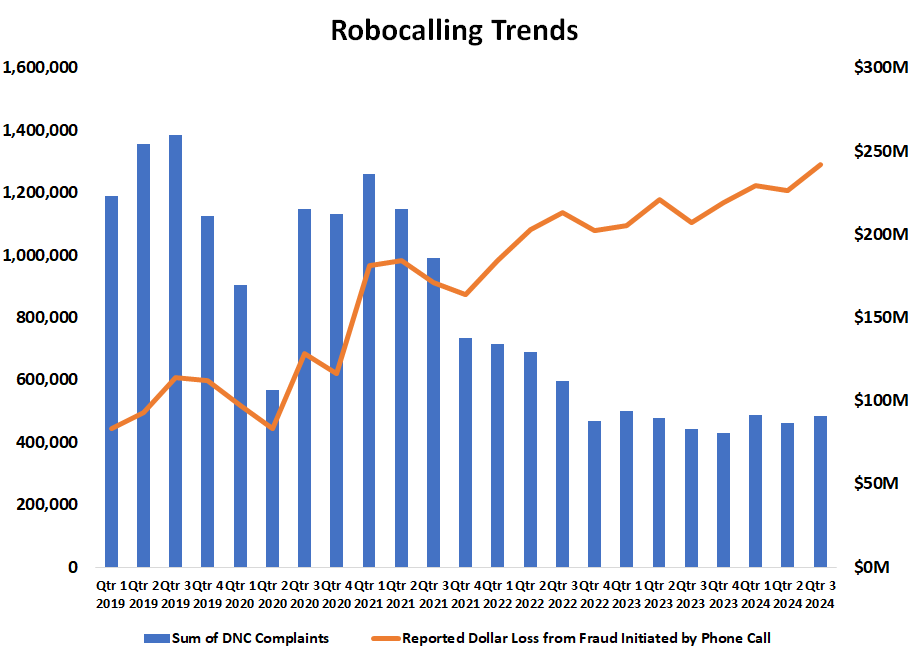
Source: FTC.gov
Implications for Policymakers
Within criminology, the Pareto Principle holds that most crime is committed by a small portion of criminals. This is commonly expressed as the “80/20” rule where 80% of crime is committed by 20% of criminals.
The reason why a small number of limited enforcement actions have had such a large impact on robocalling volumes is that there are actually not that many robocalling groups that are responsible for most robocalls. Over the past seven years, policy makers have mostly focused on stopping robocalls within telecom networks. The problem with this strategy is that criminal groups that are left to act with impunity have the ability to eventually circumvent any call blocking, filtering, labeling effort.
Enhanced emphasis on enforcement—especially cooperation between law enforcement agencies in the United States and India—will lead to significant additional protections for the American people.
